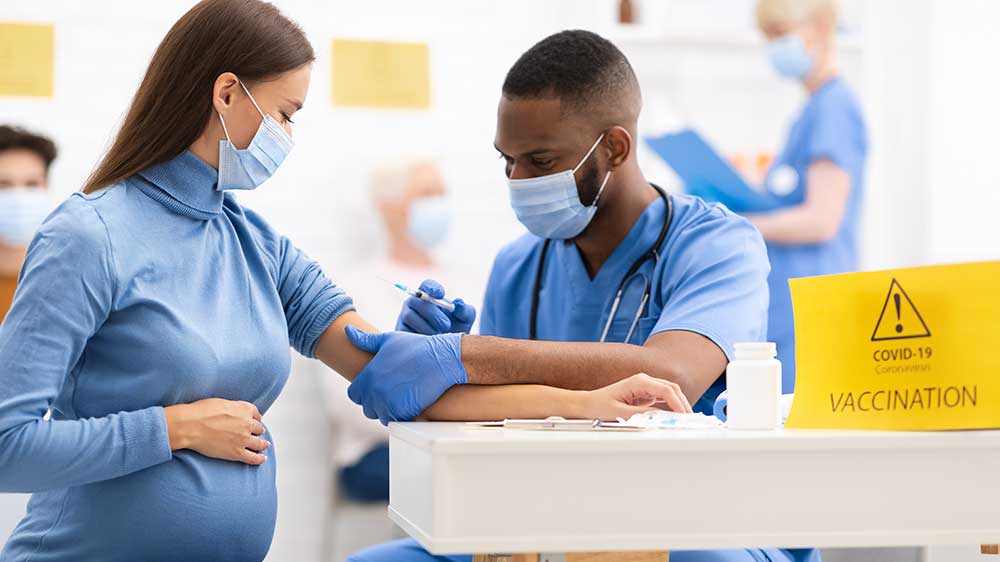COVID-19 vaccinations during pregnancy and breastfeeding
December 12, 2021Categories: COVID-19 What You Need To Know, Maternity Care

by Neil Mandsager, MD, maternal-fetal medicine specialist
Published Jan. 27, 2022
People who are pregnant are currently one of the lowest populations protected from COVID-19. Only 20-25% of pregnant people are currently vaccinated, far less than the rest of the adult population. Here are some frequently asked questions regarding the COVID-19 vaccine and why all major health organizations are strongly encouraging pregnant people to get immunized.
One of the most important messages pregnant people need to understand is that COVID-19 infections have been shown to cause more severe illness in pregnant people than in non-pregnant people, and the vaccines have been shown to decrease that risk of severe infection.
Is the COVID-19 vaccine safe during pregnancy?
Yes. Millions of pregnant people have now received the vaccine worldwide, and there is no evidence the vaccine increases risk during pregnancy, including no increased risk for miscarriage, stillbirth or birth defects. The vaccine is recommended for people who are trying to get pregnant, are pregnant, breastfeeding or may become pregnant in the future. There is no reason to delay getting the vaccine until after your baby is born.
Best COVID-19 protection for mom and baby
How does the vaccine work?
The mRNA vaccines (Pfizer-BioNTech and Moderna) stimulate cells in your body to produce a harmless piece of spike protein common to the COVID-19 virus. Your body then triggers the production of antibodies specific to this protein and activates other immune cells to fight off what it thinks is an infection. If you then are exposed to the actual COVID-19 virus, your body will attack the spike protein with the antibodies already in your system and thereby be better able to fight the virus and lessen the risk of a severe infection.
There are also important things to know about what the vaccine does not do. First, the vaccine never crosses the placenta and remains in your body for only a short period of time. Second, the mRNA never enters the nucleus of the cell and cannot change or influence your genes. Finally, none of the COVID-19 vaccines contain the live virus, and therefore the vaccine itself cannot cause an infection.
Is it better to wait until after the pregnancy to get vaccinated?
Understanding pregnant people who are not vaccinated are more likely to experience a severe infection and knowing infection can occur at any point in the pregnancy, there is now growing evidence that pregnant people with COVID-19 are more likely to have a premature birth, often because it is uncertain if the mother will survive her infection.
Additionally, there is evidence that a breastfeeding woman who is vaccinated will pass on antibodies to her baby that can protect the baby against COVID-19.
For these reasons, the best thing you can do for both yourself and your baby is to get vaccinated as soon as possible. If you have further questions about the COVID-19 vaccine, we encourage you to talk to your OB/GYN provider or speak with a MercyOne provider.
